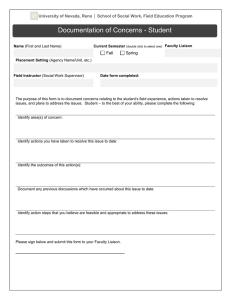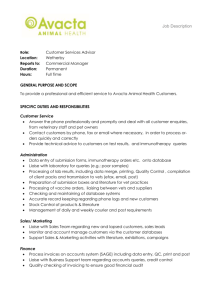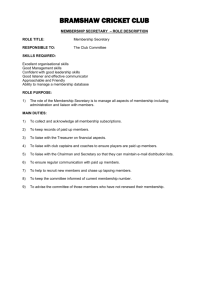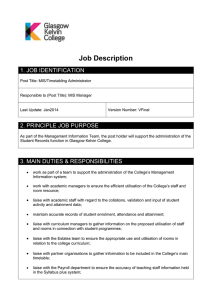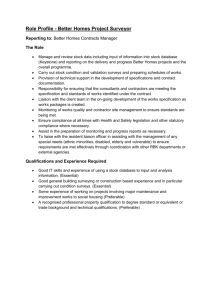DRAFT POLICY ON CONTACT WITH THIRD PARTIES IN RELATION TO
advertisement
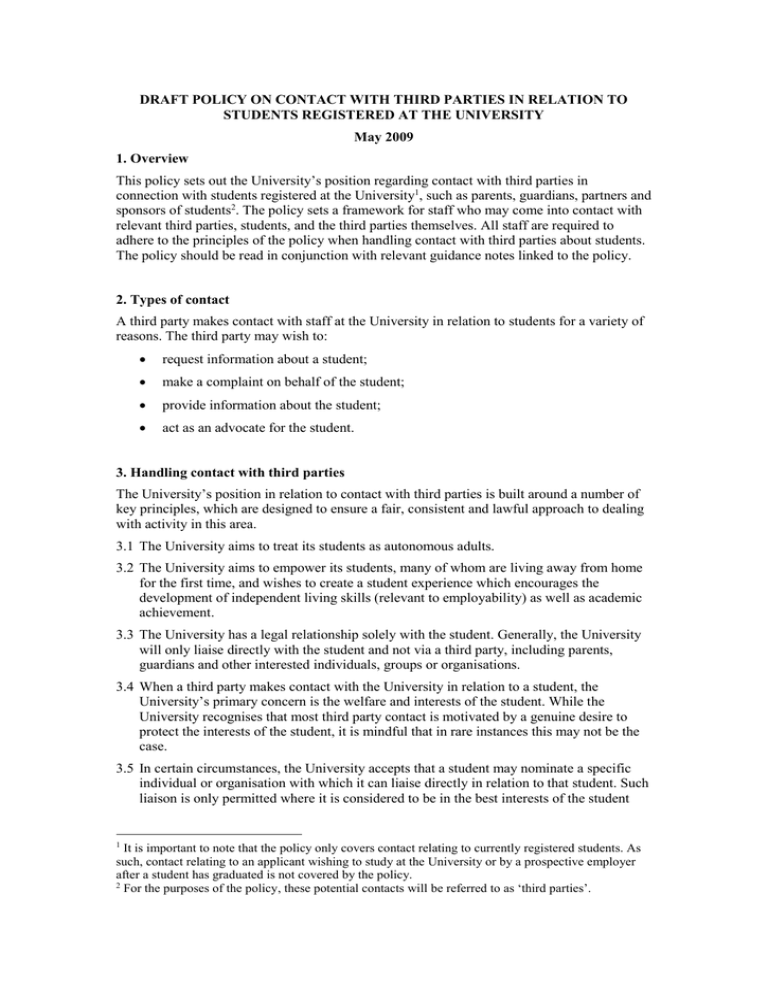
DRAFT POLICY ON CONTACT WITH THIRD PARTIES IN RELATION TO STUDENTS REGISTERED AT THE UNIVERSITY May 2009 1. Overview This policy sets out the University’s position regarding contact with third parties in connection with students registered at the University1, such as parents, guardians, partners and sponsors of students2. The policy sets a framework for staff who may come into contact with relevant third parties, students, and the third parties themselves. All staff are required to adhere to the principles of the policy when handling contact with third parties about students. The policy should be read in conjunction with relevant guidance notes linked to the policy. 2. Types of contact A third party makes contact with staff at the University in relation to students for a variety of reasons. The third party may wish to: request information about a student; make a complaint on behalf of the student; provide information about the student; act as an advocate for the student. 3. Handling contact with third parties The University’s position in relation to contact with third parties is built around a number of key principles, which are designed to ensure a fair, consistent and lawful approach to dealing with activity in this area. 3.1 The University aims to treat its students as autonomous adults. 3.2 The University aims to empower its students, many of whom are living away from home for the first time, and wishes to create a student experience which encourages the development of independent living skills (relevant to employability) as well as academic achievement. 3.3 The University has a legal relationship solely with the student. Generally, the University will only liaise directly with the student and not via a third party, including parents, guardians and other interested individuals, groups or organisations. 3.4 When a third party makes contact with the University in relation to a student, the University’s primary concern is the welfare and interests of the student. While the University recognises that most third party contact is motivated by a genuine desire to protect the interests of the student, it is mindful that in rare instances this may not be the case. 3.5 In certain circumstances, the University accepts that a student may nominate a specific individual or organisation with which it can liaise directly in relation to that student. Such liaison is only permitted where it is considered to be in the best interests of the student 1 It is important to note that the policy only covers contact relating to currently registered students. As such, contact relating to an applicant wishing to study at the University or by a prospective employer after a student has graduated is not covered by the policy. 2 For the purposes of the policy, these potential contacts will be referred to as ‘third parties’. and the University, where written consent is given, and where all parties are content with the terms of the liaison. 3.6 The University has a duty of care to protect its staff and students and manage its resources effectively. To this end, it reserves the right to refuse to liaise with a third party, particularly if it is felt that contact may impact negatively on staff time or resources, or where the third party is behaving in an aggressive or threatening way. 3.7 While formal consent may allow the University to share information about a student with a third party, particularly in relation to the management of personal information under the terms of the Data Protection Act 1998, the University reserves the right to choose not to do so. 3.8 The University is committed to compliance with the Data Protection Act 1998 and the eight data protection principles. This policy is formulated in conjunction with the University’s own data protection policy and other relevant University policies relating to confidentiality of personal information. 3.9 The University will release information about a student where there is a legal obligation, a contractual requirement to do so, or in accordance with the Data Protection statement provided to students at registration. 3.10 Information provided by a third party about a student is generally recorded on the relevant student file, to which the student has access under the terms of Section 7 of the Data Protection Act 1998. The University does not accept requests for information about a student to be retained confidentially in a way that prevents the student from knowing about it. 3.11 The University will contact a relevant third party or release information to a third party where it is necessary to protect the student’s vital interests. Such disclosures or contact are only made in accordance with the Data Protection Act 1998. In an emergency situation involving medical treatment or hospitalisation of a student, the student’s emergency contact details are likely to be passed to the relevant external authorities dealing with the situation. In certain circumstances, the University may communicate directly with the nominated emergency contact. 4. Rare or Exceptional Circumstances The University accepts that rare or exceptional circumstances may require the waiving of the general principle that it will only liaise directly with the student. Such circumstances are defined as where a student is perceived to be a serious risk to him/herself or others; where a student is under 18 or a vulnerable adult and it is judged to be in the student’s best interests3, or other relevant circumstances agreed following discussion with relevant senior staff. 5. Policy Review This policy is reviewed every three years to ensure it continues to meet effectively the University’s various operational and legal requirements. Rachel Fletcher, Director of Student Support Richard Stock, Deputy Academic Registrar May 2009 3 Such contact and liaison would be made in conjunction with the provisions of related policies, including the University’s Mental Health Crisis Intervention policy or the Under 18s and Vulnerable Adults policy and staff guidance.
